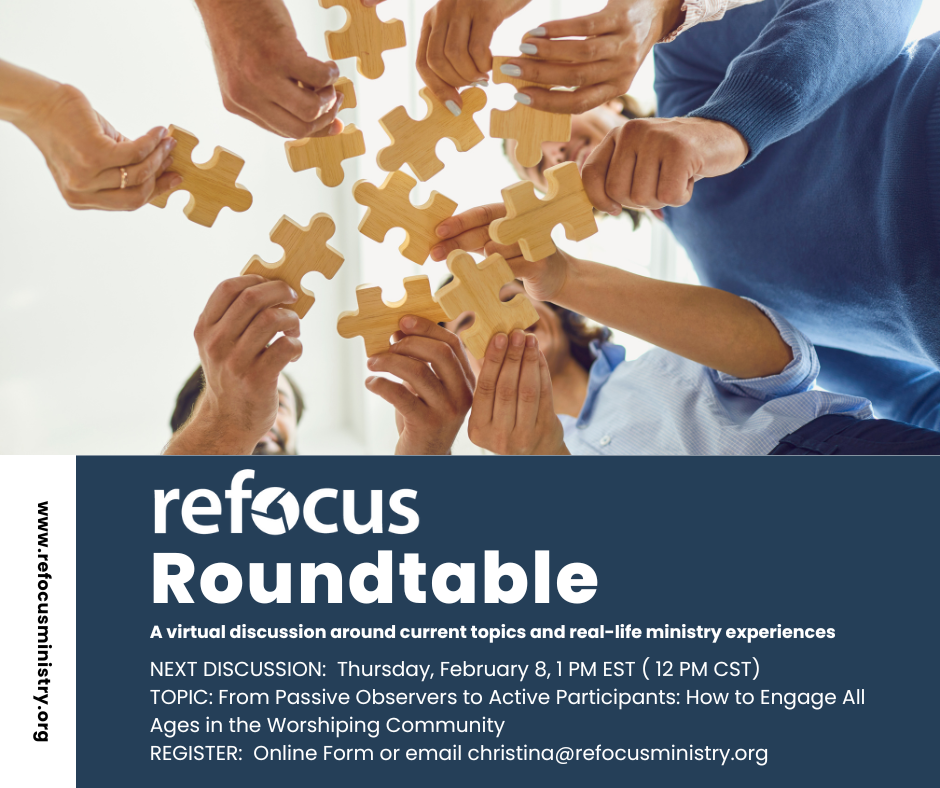It’s a good question. One that more than one parent has asked me. And, to be honest, over the years I’ve given different answers, based on my understanding of what it means to be a disciple and what discipleship looks like.
The word disciple literally means “student, learner, or follower.” Technically, the word disciple only appears as a noun. The idea of using “disciple” as an action verb is a strictly Christian usage. Generally, it is understood in Christian circles that “to disciple” someone is to help someone to become a follower of Jesus. Discipleship is the work of discipling.
So, let’s put all of that together
- A disciple is someone who learns or studies or follows someone or something.
- To disciple someone is to teach them about that person and what it means to follow.
- Discipleship is the condition or situation of being a follower or a learner of a philosophy, belief, or person.
I know that’s not what we typically think of when we talk about discipleship, making disciples, and discipling people. These aren’t necessarily the things that come to mind when a parent is told that they need to “disciple” their kids or a Sunday School class describes its new curriculum as a “discipleship program.”
Very often our ideas of discipleship, especially successful discipleship, have what certain outcomes – to make a disciple would mean someone became a Christian, got baptized, join the church. For parents, to make a disciple would mean that their kids would grow up to be Christians, followers of Christ, and stay in church. These outcomes are often what our curriculums and programs and teachings are aimed at – the goal shapes the means.

But what if those goals aren’t necessary the right goals. Of course, those are good goals and every parent’s hope and every minister’s dream, but what if the goal of discipleship isn’t to make converts and churchgoers. What if Jesus’ command to “make disciples” is to help people know who Jesus is and what it means to follow Him, even if they choose not to do so for a time?
I cannot help but think of Jesus.
More specifically, lately, I remember Judas. Remember Judas? He was one of the 12 disciples. He was part of Jesus’ inner circle. Jesus, the Son of God himself, discipled Judas. He poured into Judas and let Judas get to know him in the most intimate circle. Judas was numbered with people like Peter and John. And Jesus was his pastor.
And Judas chose not to follow Jesus. He chose to turn his back on his pastor, his faith, and his community.
As I sit with that reality, and I think about some of the people who I love so very much who have chosen not to follow Jesus, I recognize that even Jesus could not make people follow Him. He could not “make disciples” by our definition. He offered life. He gave wisdom and love and a place to belong. He also gave a choice. If Jesus were to mark sheets of paper with his discipleship successes and failures, multitudes would fill the fail column and the success column would dim in comparison.
To know who Jesus is. To know what it means to follow Him.
If our children, our neighbors, our family, our fellow Christians – if all of these people who interact with us on a daily basis know who Jesus is and what it means to follow him, we are indeed making disciples. The Holy Spirit is the only one who can draw hearts to Christ – we can share the reason for the hope we have in Christ, the One we follow (1 Peter 3:15).
Jesus tells us to “make disciples.” Disciple literally means “student, learner, or follower.” To make disciples is to teach people about Jesus and help them to follow Him. How? In 1 Corinthians 11:1 Paul says, “Follow me as I follow Christ.” We can follow Jesus. We can tell others about Him. We can love God and love others and share the peace of Jesus like Jesus told us to. And in doing so, we are in fact making disciples.
I’ve become more and more convinced that if the people we influence know who Jesus is and know what it means to follow Him, we’ve absolutely answered the call to make disciples, even if they, like Judas, don’t choose at this time to follow Him
Parents – follow Jesus. Talk about Him with your kids. Share the hope you have. Teach them who Jesus is and what it means to follow him. Talk about Him when you sit at home and when you walk along the road, when you lie down and when you get up (Duet. 6:7). Make disciples.
Ministers – follow Jesus. Talk about Him with those you serve. Teach the good news of who Jesus is and what it means to follow Him without shame (Romans 1:16). Love God, love others, share the hope of your salvation with all who ask. Make disciples in pews and classrooms, in grocery stores and schoolyards.
Be a disciple. And in doing so, make disciples.
REFOCUS ROUNDTABLE
Welcoming all ages into worship spaces together can be an incredible blessing but it is not without challenges. One concern is that including younger generations simply means including them in the space but without including them in actively participating with the worship experience and larger church community.
What are some ways that we can help all ages to actively engage in worship together, in community sharing, and corporate gatherings?
ReFocus is hosting this online roundtable discussion for anyone interested in exploring how to cultivate an intergenerational actively-engaged church and how active participation vs. passive observation can inform our approaches to intergenerational faith community.
Reserve your seat at the table here
LAST CALL – REFOCUS MINISTRY COHORTS 2024

Are you interested in going deeper into your understanding of generational discipleship, lifelong faith formation, and intentional discipling community? ReFocus Ministry Cohorts provide ministry leaders with the opportunity to expand their leadership skills in a twelve-week shared learning experience.
Facilitated by Christina, a cohort group of 4-6 individuals from multiple faith organizations meet weekly to explore and apply the principles of leadership in generational discipleship, intergenerational ministry, and church culture transition.
About the Author

Christina Embree is the founder and director of ReFocus Ministry. She holds a masters in ministry focused on Children, Youth, and Family Ministry and a doctorate in spiritual formation with a focus on age segregation and intergenerational ministry. In addition to coaching churches of multiple denominations and traditions all around the globe, Christina serves as the Minister of Generational Discipleship for the Great Lakes Conference of the Brethren in Christ and as a pastor at Plowshares Brethren in Christ in Lexington, Kentucky. She is widely recognized as a speaker and author in the areas of generational discipleship, intergenerational ministry, and family ministry. As the mother of three children, she is familiar with the challenges of faith at home and pastoral ministry. She along with her husband Luke share a love for the church, their community, and the global work of peace and restoration through Jesus.
Interested in having Christina visit your church, speak at your conference, or coach your team? Christina speaks on a wide range of topics related to children, youth, and family ministry with a unique focus on connecting generations for discipleship within your church. Her personalized approach allows you to pinpoint the needs of your community and gain the insight that you are looking for. Whether this is a volunteer team training and pastoral staff meeting or a ministerial conference, her experience and knowledge will help you determine the next step forward in creating lifelong disciples.
Learn more at https://refocusministry.org/speaking-coaching/ and fill our our Speaker Interest Form at https://forms.gle/5Xzs5BE8pfyU2top9 to receive a personalized response.


